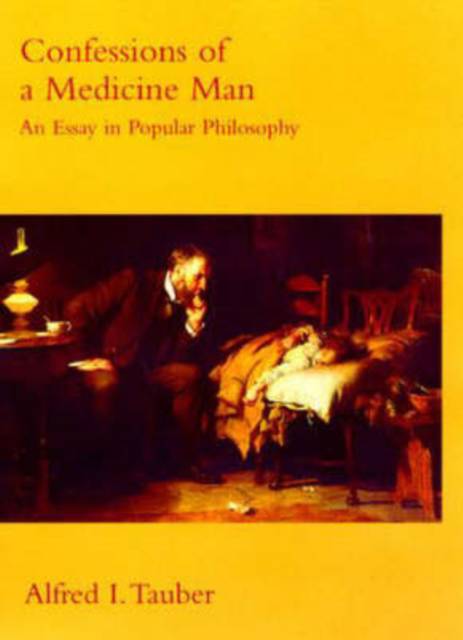
- Afhalen na 1 uur in een winkel met voorraad
- Gratis thuislevering in België vanaf € 30
- Ruim aanbod met 7 miljoen producten
- Afhalen na 1 uur in een winkel met voorraad
- Gratis thuislevering in België vanaf € 30
- Ruim aanbod met 7 miljoen producten
Omschrijving
A physician/philosopher uses anecdotes, historical narrative, and philosophical concepts to draw a moral portrait of the doctor-patient relationship.
My mission is to analyze medicines ethical structure. I do so as both a physician and a philosopher. Of my two voices, it is the latter that is informed by the former.... As a physician I have sought professional solutions to the frustrations of fighting a medical system that has become increasingly hostile to my standards of care for my patients; as a philosopher I will explore here the ethical issues I believe are the root of our predicament.--from the introduction.
In Confessions of a Medicine Man, Alfred Tauber probes the ethical structure of contemporary medicine in an argument accessible to lay readers, healthcare professionals, and ethicists alike. Through personal anecdote, historical narrative, and philosophical discussion, Tauber composes a moral portrait of the doctor-patient relationship. In a time when discussion has focused on market forces, he seeks to show how our basic conceptions of health, the body, and most fundamentally our very notion of selfhood frame our experience of illness. Arguing against an ethics based on a presumed autonomy, Tauber presents a relational ethic that must orient medical science and a voracious industry back to their primary moral responsibility: the empathetic response to the call of the ill.
Specificaties
Betrokkenen
- Auteur(s):
- Uitgeverij:
Inhoud
- Aantal bladzijden:
- 179
- Taal:
- Engels
- Reeks:
Eigenschappen
- Productcode (EAN):
- 9780262700726
- Verschijningsdatum:
- 28/02/2000
- Uitvoering:
- Paperback
- Formaat:
- Trade paperback (VS)
- Afmetingen:
- 152 mm x 228 mm
- Gewicht:
- 249 g

Alleen bij Standaard Boekhandel
Beoordelingen
We publiceren alleen reviews die voldoen aan de voorwaarden voor reviews. Bekijk onze voorwaarden voor reviews.









